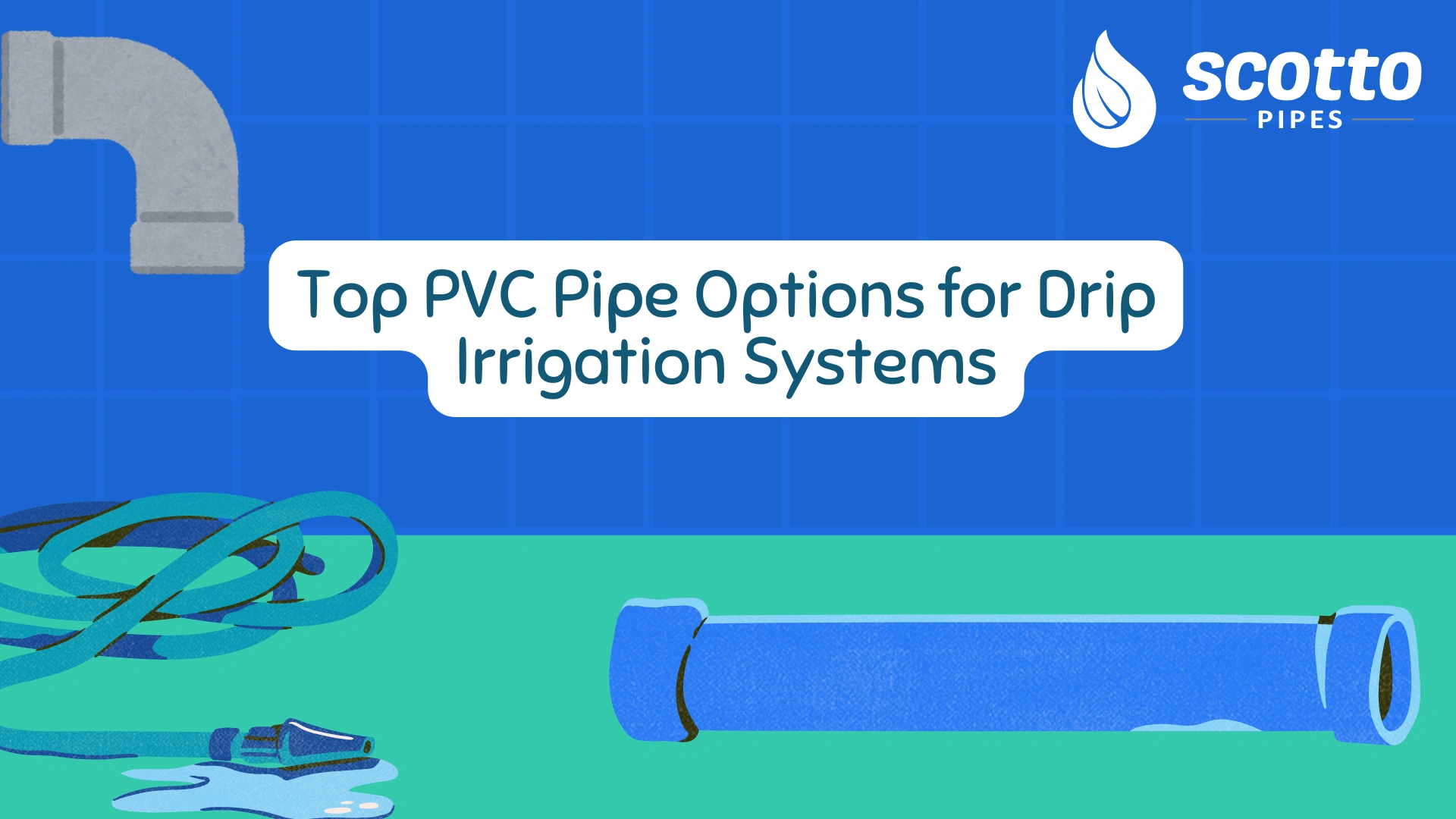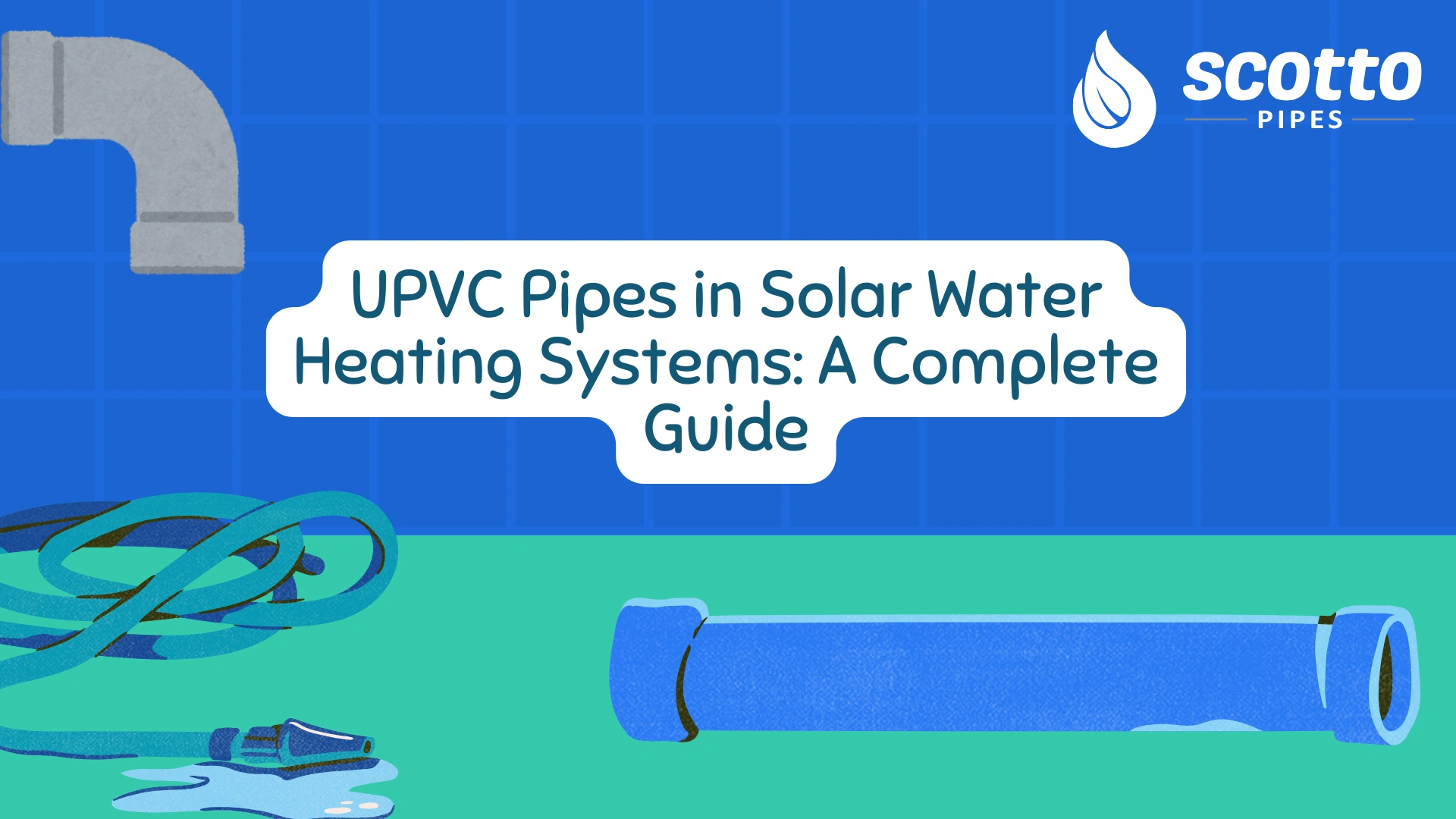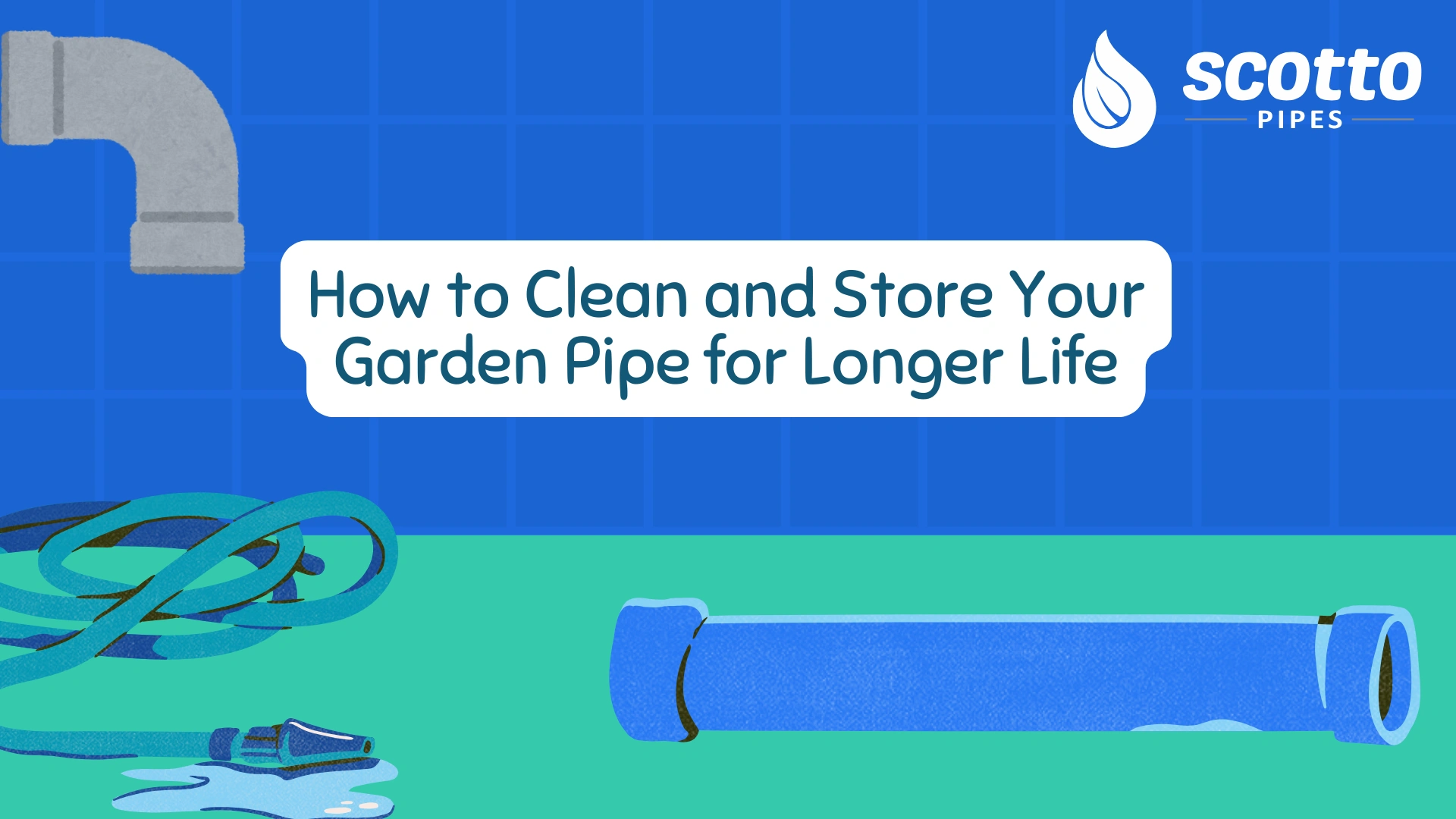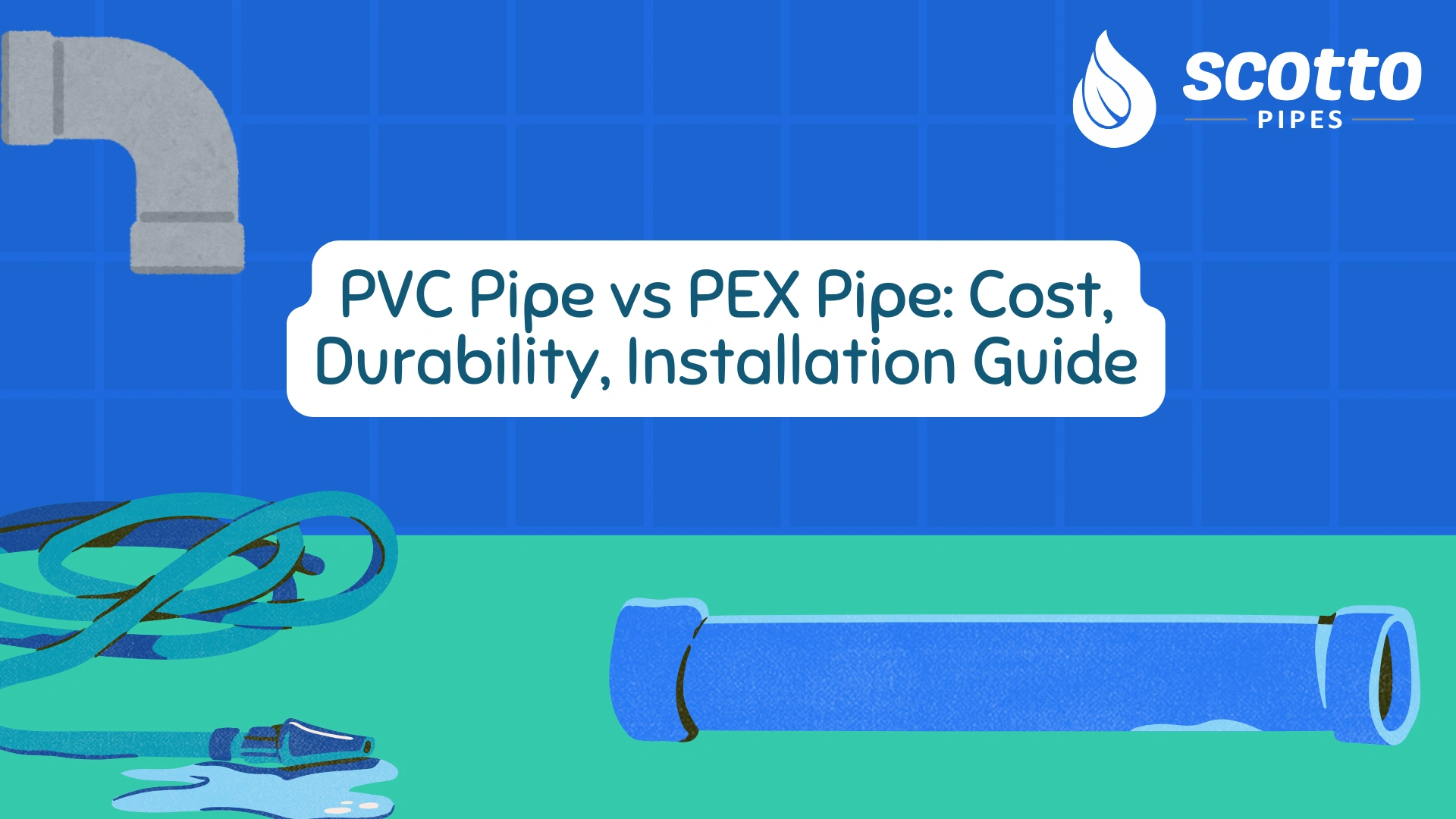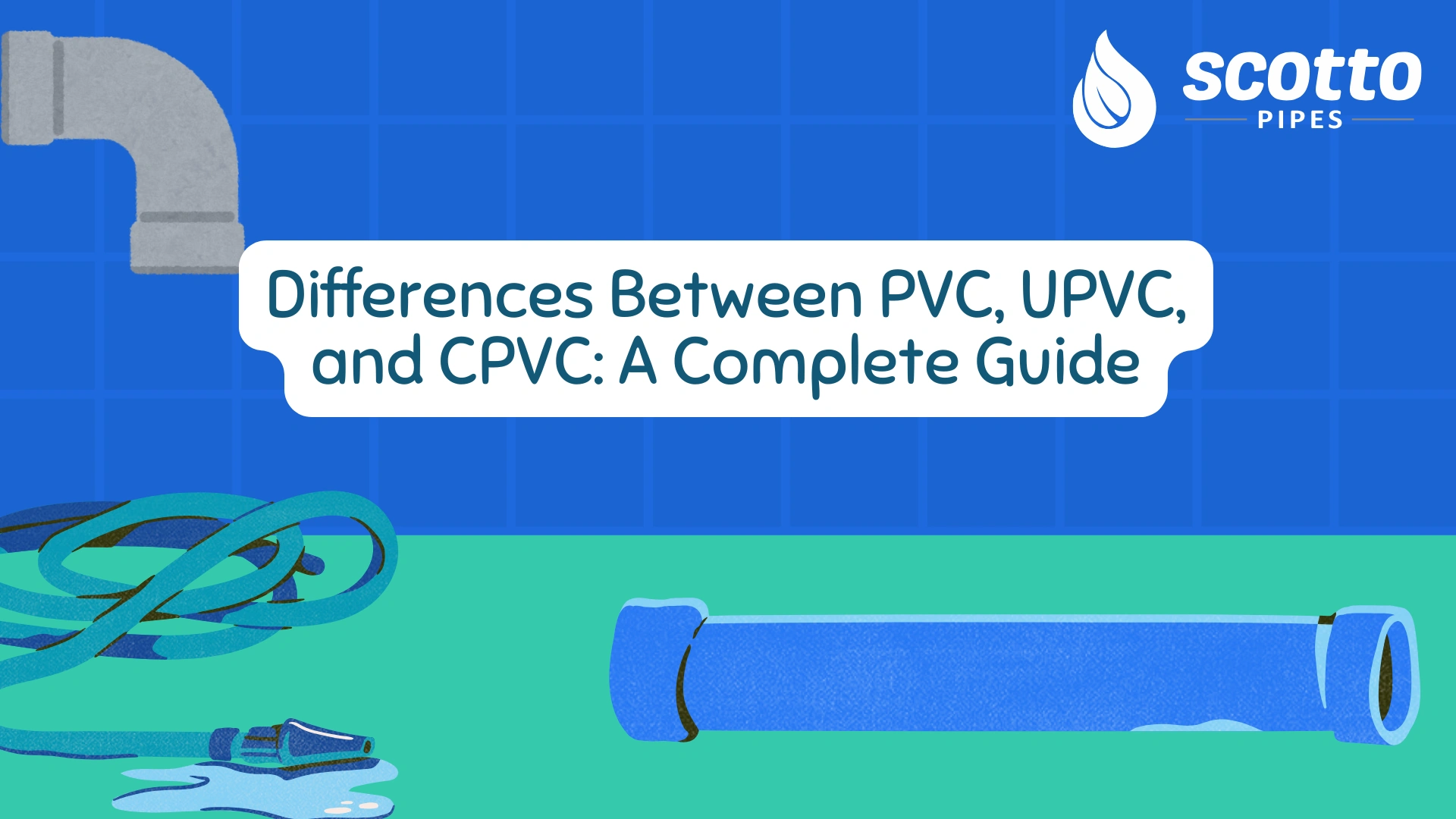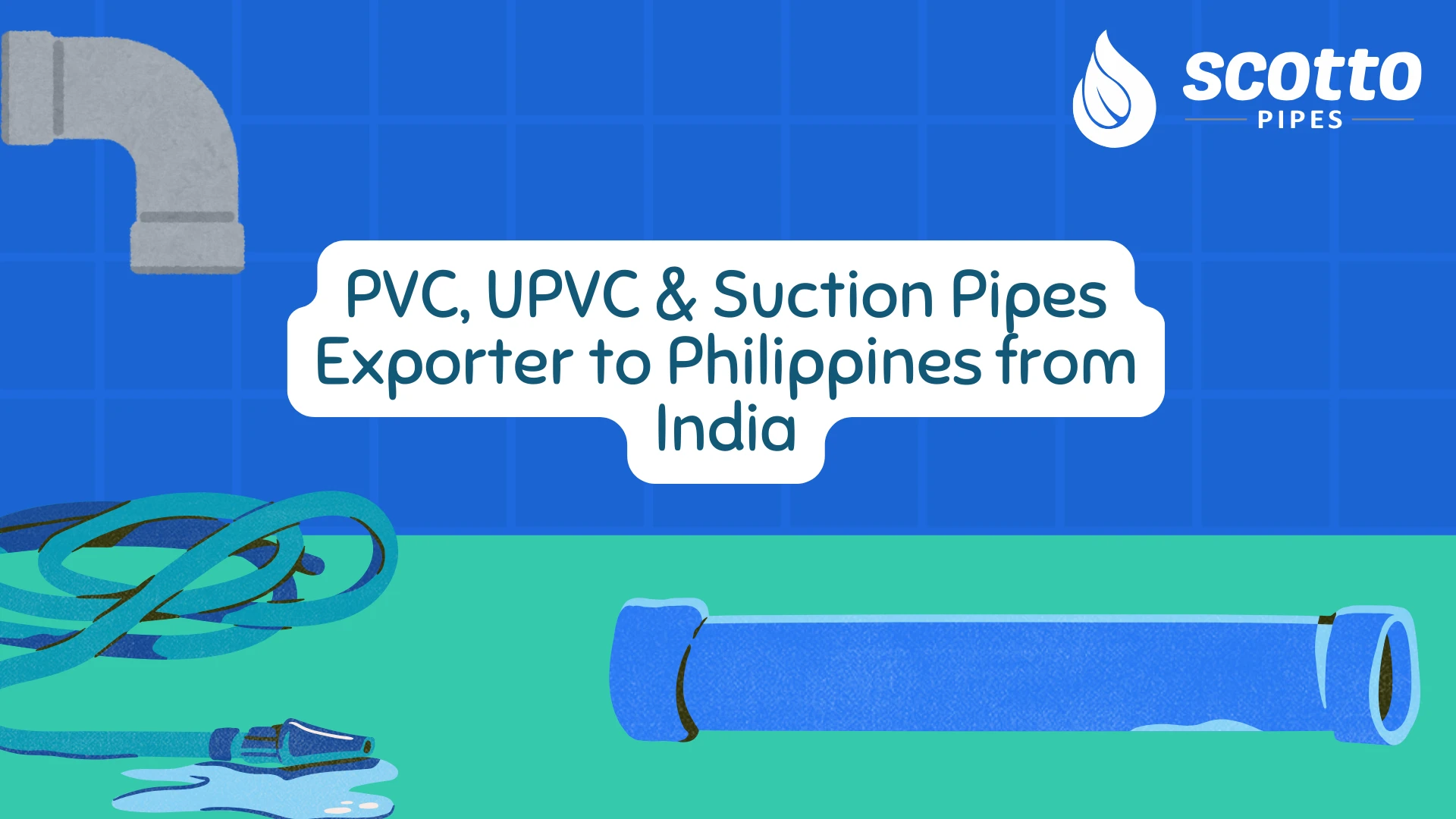
The construction and agricultural sectors in the Philippines are witnessing a remarkable transformation, driven by government initiatives, real estate expansion, and rapid urbanization. This boom has significantly increased the demand for durable, leakproof, and high-performance piping systems for water distribution, sanitation, and industrial fluid handling. Among the most trusted materials used worldwide are PVC pipe, UPVC pipe, and suction pipe known for their superior durability, chemical resistance, and long service life.
India, with its advanced manufacturing capabilities and cost-effective production infrastructure, has emerged as one of the largest exporters of polyvinyl chloride pipes and related plastic piping systems. Indian exporters supply high-quality, certified, and competitively priced products to several global markets, including the Philippines, ensuring reliability and performance even under demanding tropical conditions.
Understanding PVC, UPVC & Suction Pipes in Detail
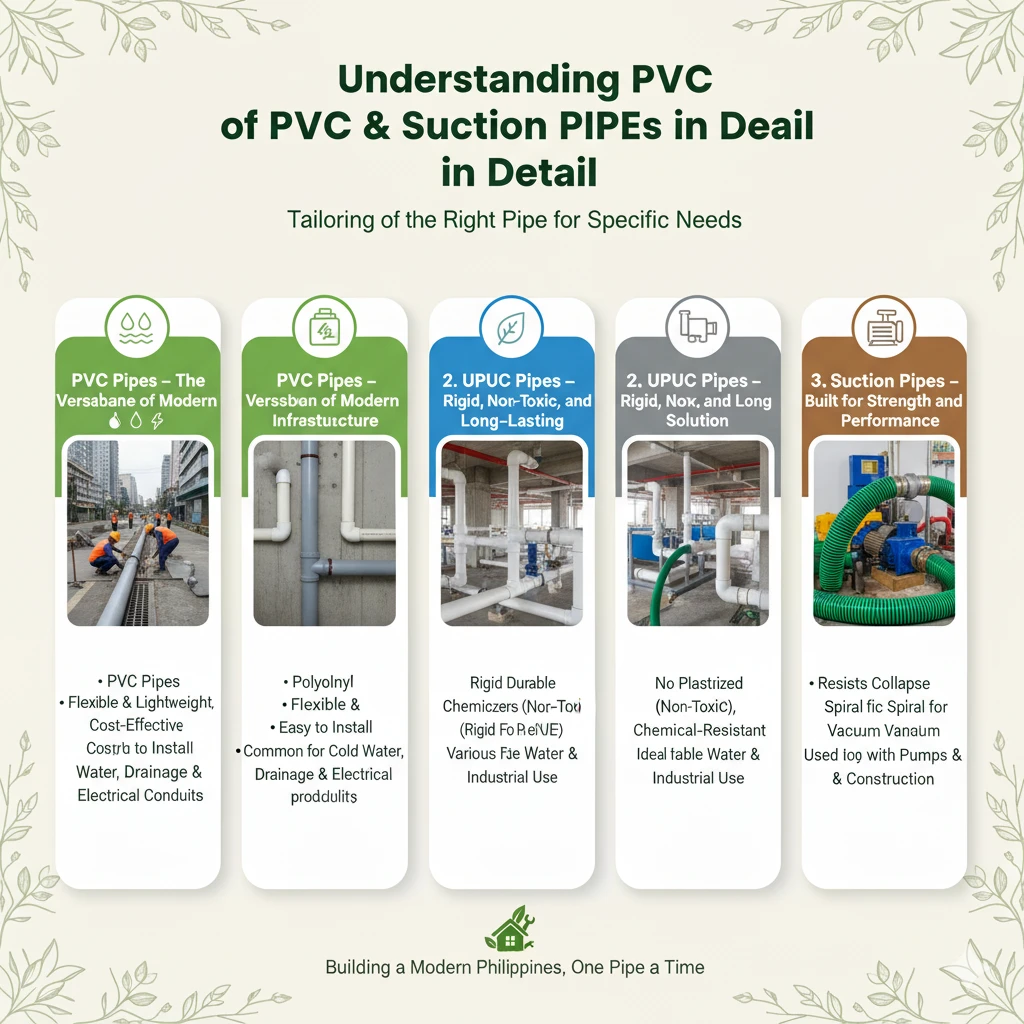
PVC Pipes – The Versatile Backbone of Modern Infrastructure
PVC (Polyvinyl Chloride) pipes are among the most extensively used materials for water supply, drainage, irrigation, and sewage systems worldwide. These pipes are manufactured through extrusion of polyvinyl chloride resin mixed with stabilizers and modifiers that enhance flexibility and chemical resistance.
PVC pipes offer an impressive combination of lightweight structure, smooth inner surface, and high flow efficiency, minimizing friction losses during water transport. Available in multiple pvc pipe diameters and pressure classes, they can handle residential, commercial, and industrial fluid systems with ease. Moreover, their non-corrosive and rustproof properties make them ideal for underground and above-ground installations in tropical climates like the Philippines.
UPVC Pipes – The Rigid, Non-Toxic, and Long-Lasting Solution
UPVC (Unplasticized Polyvinyl Chloride) pipes are made from a rigid form of PVC that contains no plasticizers, resulting in higher tensile strength and longer service life. These pipes are 100% lead-free and non-toxic, making them suitable for drinking water applications, chemical transfer lines, and industrial drainage systems.
UPVC pipes have a lower thermal expansion coefficient compared to regular PVC, ensuring minimal deformation even under high temperatures. Their resistance to scaling, bacterial growth, and weathering makes them ideal for coastal and humid environments. With upvc pipework engineered for high internal pressure and mechanical loads, these pipes are widely used in high-rise buildings, irrigation systems, and municipal pipelines.
Suction Pipes – Built for Strength and Performance
A suction pipe is a specially designed flexible hose used to convey liquids under suction pressure. Its structure typically includes a rigid PVC spiral embedded within flexible walls, allowing it to withstand both positive and negative pressures without collapsing.
Suction pipes are highly valued in agricultural irrigation, industrial dewatering, sewage pumping, and construction water transfer. The material’s UV stability and weather resistance make it reliable even when exposed to direct sunlight or fluctuating temperatures. In addition, the pipe’s smooth bore ensures uninterrupted fluid flow and minimizes energy loss during suction operations.
Why Is the Philippines Importing PVC & UPVC Pipes from India?
The Philippines’ growing construction, housing, and agricultural sectors have driven unprecedented demand for piping systems that are durable, affordable, and easy to maintain. Local manufacturers are unable to meet this surge entirely, opening a steady channel for imports, particularly from India.
Indian manufacturers have invested in advanced extrusion lines, quality control labs, and automation systems, allowing them to produce pvc water pipes, upvc pipelines, and suction hoses that meet or exceed international standards. Furthermore, India’s strategic position and well-developed shipping infrastructure enable cost-efficient delivery to Southeast Asian countries like the Philippines.
Reports suggest that India exported over USD 750 million worth of PVC and UPVC pipes in FY 2024–25, marking a strong 15% year-on-year growth. Philippine importers prefer Indian suppliers due to their flexibility in customization, quick turnaround, and capability to deliver complete systems, including pvc pipe fittings, plastic pipe accessories, and jointing solutions.
Scotto Pipes – A Trusted Manufacturer and Exporter of PVC Pipes
Scotto Pipes stands as one of India’s most trusted names in the pipe manufacturing industry. As a leading PVC pipe manufacturer and exporter, Scotto specializes in producing premium-quality PVC, UPVC, and suction pipes that undergo rigorous testing to ensure performance and safety. Each product from Scotto passes through multiple quality control stages, including pressure testing, impact resistance, and thermal stability checks, guaranteeing pipes that meet global standards. The brand’s dedication to innovation and precision engineering has made Scotto a reliable partner for exporters supplying to the Philippines and other international markets. Whether it’s PVC pipe fittings or plastic pipe solutions, Scotto ensures that every product delivers durability, strength, and long-term value.
Advantages of Sourcing from Indian PVC Pipe Exporters
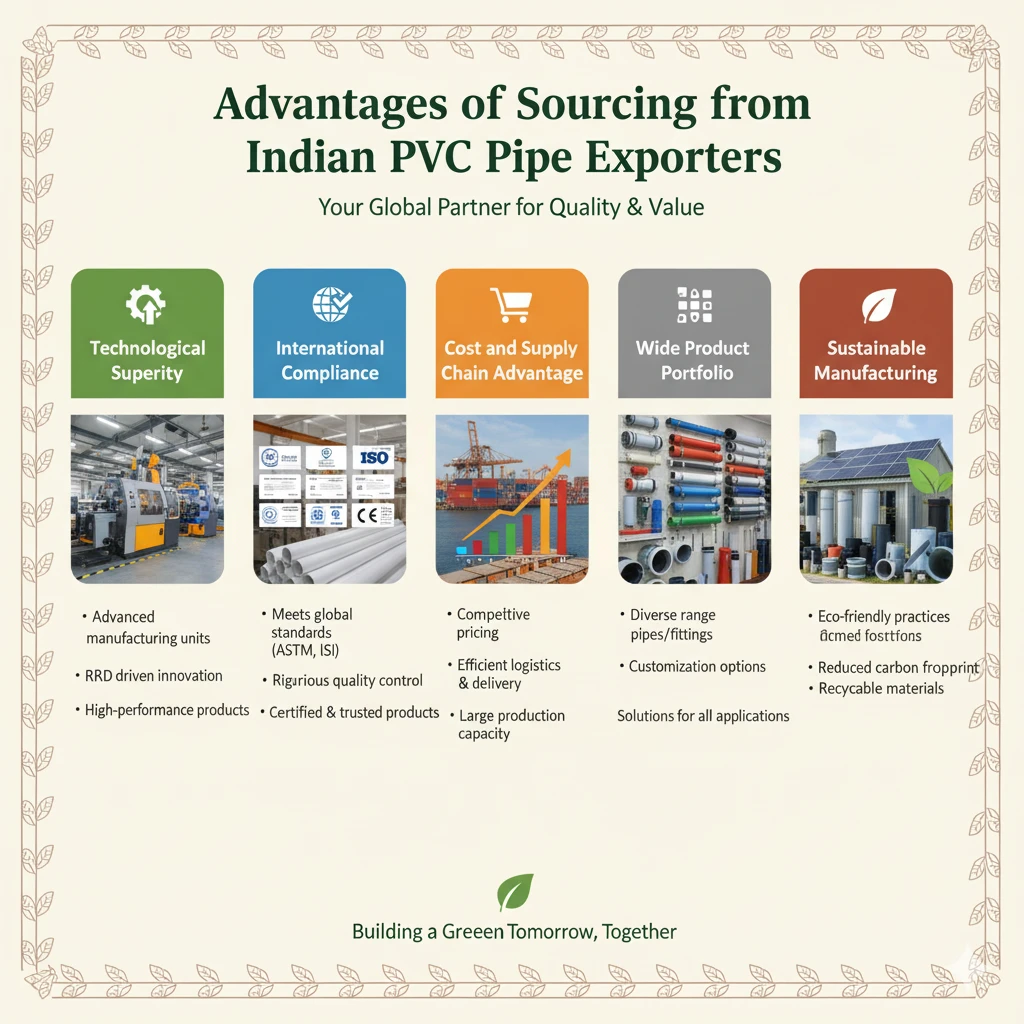
1. Technological Superiority
Indian pvc pipe suppliers employ cutting-edge extrusion and calendaring technology to ensure dimensional precision, consistent wall thickness, and leakproof joints. Automated inspection systems detect surface irregularities and guarantee uniformity across large production batches.
2. International Quality Compliance
Top manufacturers follow international norms such as ASTM D1785, ISO 1452, and BIS IS:4985 standards for pressure-rated pipes. Each pipe undergoes testing for hydrostatic pressure, impact resistance, and thermal reversion to ensure long-lasting performance under varying operating conditions.
3. Cost and Supply Chain Advantage
India benefits from abundant raw materials, skilled labor, and established polymer industries, which help maintain competitive pricing. Additionally, exporters offer large-scale supply capabilities, supporting projects of any size, from municipal water networks to industrial complexes.
4. Wide Product Portfolio
Indian exporters provide a complete piping ecosystem, including plastic pvc pipe, pvc fittings, elbows, couplers, reducers, and pvc pipe and fittings for every purpose, enabling Philippine importers to source all components from a single trusted partner.
5. Sustainable Manufacturing
Many Indian factories are transitioning toward green practices, using recycled polymer blends and solar-powered plants, making their polyvinyl chloride pipes an eco-friendly choice aligned with global sustainability goals.
The Export Process from India to the Philippines
Exporting PVC, UPVC, and suction pipes from India to the Philippines involves several well-defined steps to ensure legal compliance, quality assurance, and safe shipment.
-
Regulatory Setup and Documentation: Exporters must have an Import Export Code (IEC) and issue a Commercial Invoice, Packing List, Bill of Lading, and Certificate of Origin. Test certificates, quality inspection reports, and insurance documents are mandatory to ensure transparency and product traceability.
-
Packaging and Handling: Pipes are bundled in plastic wraps, with capped ends and strapping to prevent dust or deformation during transit. For large orders, exporters use wooden pallets and weather-resistant packaging materials.
-
Logistics and Transportation: Shipments are primarily routed via Mundra Port, Nhava Sheva, or Chennai Port in India to Manila, Cebu, or Davao Ports in the Philippines using sea freight. Transit time usually ranges between 12–18 days depending on shipping mode and season.
-
Customs and Clearance in the Philippines: Importers must adhere to the Bureau of Customs (BOC) regulations, pay import duties, and ensure all documentation aligns with local import standards for smooth clearance.
Testing, Standards, and Quality Control
Each pvc pipeline or upvc pipework shipment undergoes detailed quality inspections before export:
-
Hydrostatic Pressure Test: Measures internal pressure tolerance.
-
Impact Test: Evaluates resistance to mechanical stress.
-
Reversion Test: Checks stability under temperature variations.
-
Dimensional Accuracy Test: Ensures precise pvc pipe diameters and wall thickness.
-
Chemical Resistance Test: Confirms durability against chemicals and fertilizers.
Reputed exporters issue third-party laboratory reports with every shipment, assuring buyers in the Philippines of product authenticity and performance reliability.
Applications of PVC, UPVC & Suction Pipes in the Philippines
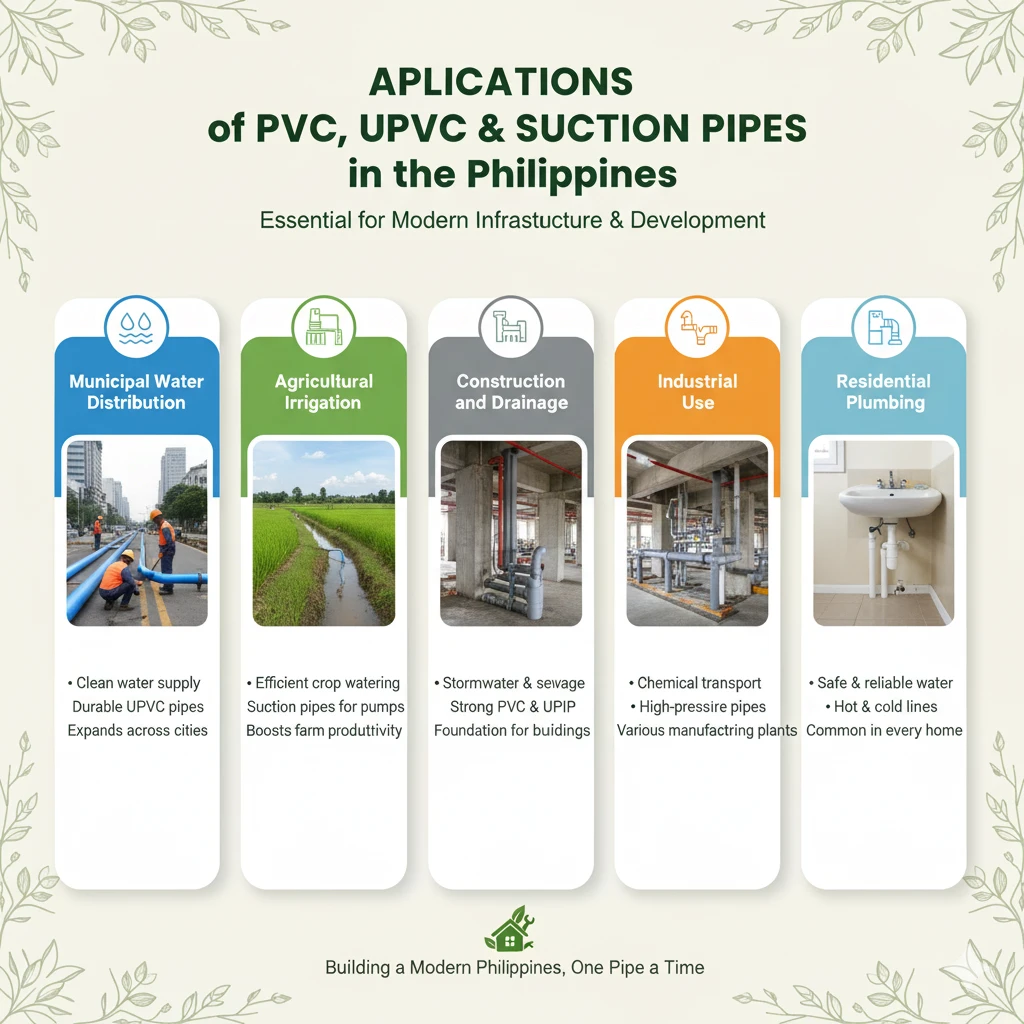
-
Municipal Water Distribution: UPVC pipes serve as the backbone of city water supply systems, offering low maintenance and long-term dependability.
-
Agricultural Irrigation: Suction pipes are used extensively with pumps for irrigation and dewatering in farms across Luzon, Visayas, and Mindanao.
-
Construction and Drainage: Lightweight pvc pipeline systems are ideal for underground drainage and rainwater harvesting projects due to easy installation.
-
Industrial Use: Plastic pipes are used in chemical processing, power plants, and cable conduits for their corrosion resistance.
-
Residential Plumbing: From homes to apartments, pvc pipe and fittings provide efficient water flow and leakproof performance, ensuring hygiene and longevity.
Common Sizes and Dimensions Available
| Pipe Type | Diameter Range | Pressure Rating | Applications |
|---|---|---|---|
| PVC Pipe | 20 mm – 400 mm | 2.5 – 16 kg/cm² | Water supply, drainage |
| UPVC Pipe | 25 mm – 250 mm | 4 – 10 kg/cm² | Plumbing, industrial use |
| Suction Pipe | 25 mm – 150 mm | Variable | Pumping, irrigation |
| Flexible PVC Pipe | 12 mm – 100 mm | Light duty | Gardening, temporary supply |
These are customizable as per client specifications, with varying colors, lengths, and thicknesses to meet regional needs.
How to Choose Reliable PVC Pipe Suppliers in India
When selecting an exporter, Filipino buyers should ensure the following:
-
Verify ISO, BIS, or ASTM certifications.
-
Request sample testing for physical verification.
-
Check export experience and trade references.
-
Compare total landed cost (including shipping and tariffs).
-
Opt for exporters providing after-sales support and warranty coverage.
Partnering with an experienced supplier minimizes the risk of delays, substandard products, and customs issues.
FAQs Section
1. What is the difference between PVC and UPVC pipes?
PVC contains plasticizers, making it slightly flexible, while UPVC is unplasticized and rigid. UPVC offers higher strength, better UV resistance, and longer service life, ideal for permanent water systems.
2. Can suction pipe be used for drinking water?
While suction pipes are mainly used for water transfer, high-quality food-grade variants can be safely used for potable water under regulated conditions.
3. What certifications should a PVC pipe exporter have?
Reputable exporters hold ISO 9001, BIS (IS:4985), ASTM, and ISO 1452 certifications, ensuring adherence to global safety and quality standards.
4. How much does it cost to import PVC pipes from India to the Philippines?
Pricing depends on size, thickness, and order quantity. Typically, PVC and UPVC pipes cost between USD 0.80 to USD 2.50 per meter, excluding freight and import taxes.
5. What are the advantages of importing from India?
Indian exporters offer certified quality, extensive product variety, faster shipping cycles, transparent documentation, and strong after-sales support, making them preferred partners across Southeast Asia.
Future Outlook & Industry Trends
The global plastic pipe industry is shifting towards sustainability and innovation. Indian exporters are adopting eco-friendly materials, solar-powered production lines, and smart monitoring technologies that enable leak detection and predictive maintenance.
With Asia-Pacific projected to dominate the market share by 2028, the demand for flexible pvc pipe, upvc pipeline, and suction pipe in tropical regions like the Philippines is expected to grow exponentially, creating stronger trade ties between both nations.
Conclusion
As infrastructure, agriculture, and industrial development accelerate across the Philippines, the role of reliable piping systems becomes critical. India stands out as a trusted and proven exporter of pvc pipe, upvc pipe, and suction pipe, delivering quality, innovation, and affordability.
For Philippine importers, choosing an Indian pvc pipe supplier like Scotto Pipes ensures access to a complete range of certified products that guarantee performance, compliance, and long-term value


